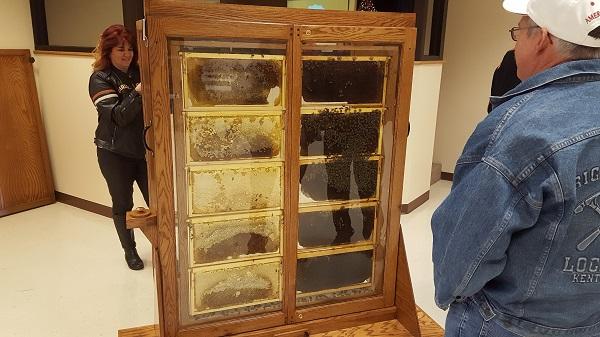At Madison Elementary, bees were often met with fear and misunderstanding. Mrs. Thompson's 5th-grade class was no exception. The children, like many, only saw bees as threats, buzzing nuisances to be avoided. Determined to change this, Mrs. Thompson introduced the Observation Hive Program from Save The Bees USA.
When the hive arrived, curiosity filled the room. The clear hive allowed the children to safely observe the bees. Mr. Alvarez, from Save The Bees USA, explained how bees pollinate plants, communicate through dances, and support their hive. Joey, once terrified, was fascinated by the bees' teamwork. Sarah, who had always panicked at buzzing, began to draw intricate pictures of the hive and its inhabitants.
Over the weeks, the children’s understanding deepened. They learned how essential bees are for pollinating many of their favorite foods. The hive became a central part of their studies, inspiring poems, science projects, and a bee-friendly garden. Fear turned to respect and a sense of responsibility.
By the end of the semester, Mrs. Thompson’s class had transformed. The students now saw bees as vital to our ecosystem. Joey and Sarah confidently presented their projects, explaining how crucial it is to protect bees.
The Observation Hive Program changed these children's perceptions and can do the same for many more. Your donation to Save The Bees USA can help bring this program to other schools, fostering a new generation of bee advocates. Together, we can make a difference.



